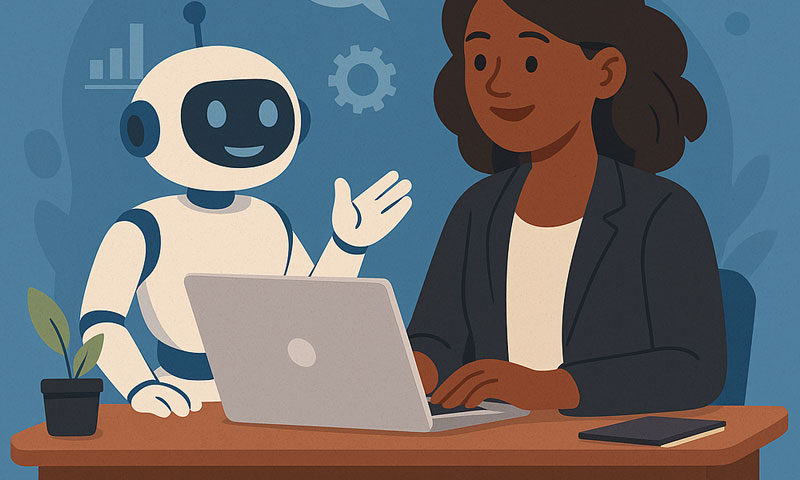In 2025, artificial intelligence (AI) is no longer just a tool for tech giants and global corporations. Thanks to accessible platforms, user-friendly interfaces, and scalable solutions, AI is now empowering small businesses in ways that were unimaginable a few years ago. From automating tasks to enhancing customer experiences, here’s how AI is transforming the small business landscape this year.
1. Smarter Customer Engagement
Small businesses can now use AI-driven chatbots and virtual assistants to offer instant, 24/7 support—without hiring a large customer service team. These bots handle frequently asked questions, guide users through products or services, and even process orders. Tools like ChatGPT plugins, Drift, and Intercom allow small businesses to create human-like interactions that boost customer satisfaction and reduce response time.
2. Targeted Marketing Made Easy
AI tools are taking the guesswork out of marketing. Platforms like Mailchimp, Canva, and HubSpot now integrate AI to help businesses understand customer behavior, segment audiences, and personalize email campaigns and social media posts. This means small businesses can deliver the right message at the right time—without needing a dedicated marketing department.
3. Automating the Back Office
From bookkeeping to scheduling, AI is simplifying everyday operations. Apps like QuickBooks, Zoho Books, and Xero now include AI features to automatically categorize expenses, send invoices, and forecast cash flow. Scheduling assistants like Calendly use AI to coordinate meetings without the back-and-forth emails. These tools help entrepreneurs focus on growing their business rather than being bogged down by admin work.
4. E-Commerce and Inventory Intelligence
AI tools integrated with platforms like Shopify, WooCommerce, and Square analyze sales data to recommend which products to promote, when to reorder stock, and even predict future demand. AI can also help create product descriptions, manage customer reviews, and streamline logistics—making it easier for small online shops to compete with major retailers.
5. Affordable Content Creation
Thanks to AI, producing professional-quality content is more affordable than ever. AI writers help with blog posts, product descriptions, and ad copy, while AI image and video tools like DALL·E and Runway can generate custom visuals or edit videos quickly. This gives small businesses a creative edge without needing to hire full-time designers or writers.
6. Better Hiring and HR
AI can assist in screening job applications, matching candidates to roles, and even drafting job descriptions. Platforms like Breezy HR or Workable now use AI to improve recruitment processes, helping small businesses find the right talent efficiently.
7. Data-Driven Decisions
Finally, AI helps small businesses make smarter decisions. With simple dashboards and predictive analytics, platforms like Tableau, Zoho Analytics, and Google Looker Studio translate raw data into actionable insights—such as identifying trends, tracking KPIs, or spotting underperforming areas.
AI in 2025 is no longer a luxury—it’s a practical necessity that small businesses can’t afford to ignore. Whether you’re a local bakery, a freelance designer, or a small tech startup, AI tools are making it easier to serve customers, optimize operations, and compete in a digital economy. The best part? Many of these solutions are either low-cost or completely free, putting powerful technology right at your fingertips.
Small businesses that embrace AI now will not only keep up—they’ll lead.

